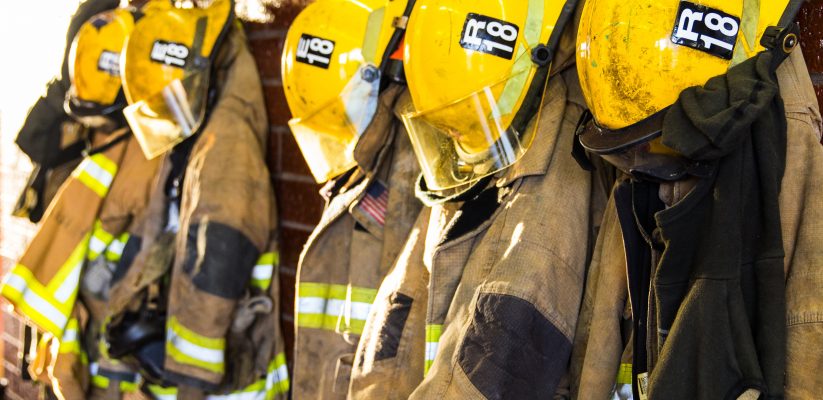Authors: Prof Damien Ridge, Prof Coral Dando and Chantal Gautier.
Men are at relatively high risk of suicide. As a consequence, it has become common in suicide prevention campaigns to call for men to ‘open up’ about their feelings to others, for example, in the #LetWhatsInsideOut campaign. On one level this makes sense, as bottling up difficult feelings can impact on mental health. But there are a number of assumptions made in these campaigns. For instance, that others will generally be happy to listen to emotionally vulnerable men. Or that we don’t need to consider the relationships in which talk itself might happen (e.g. where professionals may be prescriptive about what talk is permissible), nor the social conditions which promote distress (e.g. austerity).
Another assumption is that masculinity is something individual men can ‘do something’ about, which necessarily presupposes that masculinity is an individual choice of men, and not in fact a (fairly brutal) social-wide regime. Masculinity turns out to be an interactional accomplishment which men are expected to conform to, and which involves the participation of other people (e.g., think of the high stakes policing of gender that goes on in the playground against boys who are somehow different, sensitive or creative). But if masculinity is shaped via our interactions in this way, it must also be unstable. There is even the potential that locally, idealised masculinity can evolve, perhaps even in more positive ways, to encompass positive qualities, like openness to vulnerability.
To address uncertainty in the literature, we investigated the experiences of men across different traditionally male dominated professions, namely first responders (including police, paramedics, and firefighters/rescue). We were interested in finding out how their vulnerabilities manifest, are accommodated and managed. While all kinds of first responder work produces vulnerabilities such as fear, guilt, anxiety, trauma, we uncovered remarkable differences among first responders in how such vulnerabilities were handled.
Men from the fire and rescue service talked about relatively flat hierarchies (e.g., ‘your line managers will ride on the appliances with you ‘) and ‘hot’ (emotional) debriefs (e.g., ‘straight away after the incident we’ll gather together and talk’). However, police stories were underpinned by anxieties about showing weaknesses. There were the ongoing negative public perceptions about ‘cops’ and ‘enforcers’ depicted in the media; the alienating nature of relatively rigid and competitive police force hierarchies which seemed to defy change; the lack of opportunities for peer support despite its obvious value, like when shift work involves an array of rotating colleagues; not to mention how their (traditionally) masculine-oriented work was resisting traditionally feminine (caring) work overlaid on top of enforcement. All of which seemed to make talking openly or admitting to vulnerability comparatively unsafe.
‘…there are certain people who I can talk to knowing that if I say something personal…it doesn’t go any further… maybe two people… they’re not from a background of police.’
(Simon, Police)
‘It’s perceived as a weakness… people that go off on stress are light weights and they just wanted a bit of a holiday…’
(Noel, Police)
‘[If I] need to go and take a couple of weeks off to get my head right, I think a lot of people would more likely to go, “Yeah, I think that’s a good idea”’
(Toby, Fire service)
The expression of our weaknesses is increasingly positioned as a key human (and male) capacity. But few acknowledge how the expression of vulnerability is allowed under certain circumstances, and disallowed in many others. The new cultural directive insisting on men opening up for their mental health ignores the wide-ranging structures and relationships in which men are expected to operate. Opening up emotionally is differentially allowed and structurally ordained. Nevertheless, even police participants acknowledged that historical change was lapping at the doors of the emergency services:
‘…younger people are just a bit more open minded and a bit more accepting of everyone’s different attitudes.’
(Ben, Paramedic)
‘…it will take time for…fresh blood to come through, and the people that have those biases to be reduced…’
(Rupert, Police)
For more information, please read our paper free to the public.
Authors’ biography
Damien Ridge is Professor of Health Studies. Initially studying medicine, he transferred to the social sciences, and is now a qualitative research expert on the lived experience of health conditions, and a psychotherapist practicing in the community. His research focuses on mental health and recovery, chronic a health conditions, masculinities and health, patient centred care and experiences, sexual health, sensitive qualitative research methods and complex evaluations of health and social services.
Prof Coral Dando returned to education in 2002 following almost 10 years’ service as a London Police Officer. She completed a BSc. (Hons) Psychology at Kingston University London, and a PhD in Applied Forensic Cognition. Prof Coral was awarded a Chair in Psychology in 2015, and joined the University of Westminster as a Professor of Psychology in 2016. Since completing her PhD, her research has attracted over 2 million pounds of external funding from the UK, European, and US governments, of which over 1 million pounds have been awarded to her as Principal Investigator.
Chantal Gautier is Senior Lecturer, C Psychologist (BPS) and experienced eclectic consultant. She teaches on the BSc Psychology and BSc Psychology and Counselling programmes and at Masters level. Chantal specialises in a wide range of academic and business activities covering a variety of specialised subject areas including leadership, team building, engagement, workplace bullying, luxury services, motivation, job satisfaction, office re-design and workplace romances.
